Virtual History Interviews
INNS
INNS is blessed with a rich reservoir of talent in the distinguished members of our College of Fellows. In order to capture some of the knowledge of these exceptional scientists and engineers, the INNS History Committee is carrying out a series of interviews with them. To date, we have completed over a dozen interviews, with more planned for the future. I trust that you will find these very illuminating for both the history of our field and for critical analysis of its future potential. With gratitude to our participants and with a warm welcome to our readers, you may access the interviews below.
-David Brown, Chair, INNS History Committee
Quick Access:
Shun-ichi Amari | Jim Anderson | Andrew Barto | David Brown | Gail Carpenter | Kenji Doya | Nicola Fabiano | Kunihiko Fukushima | Stephen Grossberg | Mitsuo Kawato | Christof Koch | Bart Kosko | Robert Kozma | George G. Lendaris | Daniel S. Levine | Jay Mcclelland | Terrence Sejnowski | Harold Szu | Paul Werbos | Bernard Widrow
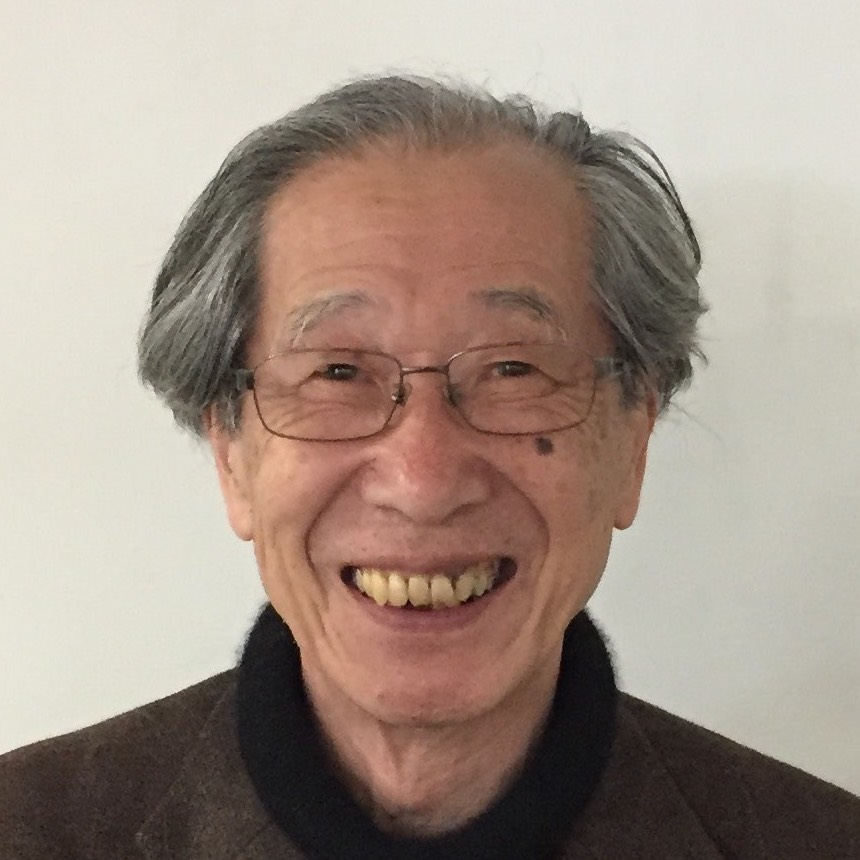
Shun-ichi Amari
|
Shun'ichi Amari is a Japanese scholar born in 1936 in Tokyo, Japan. He majored in Mathematical Engineering in 1958 from the University of Tokyo then graduated in 1963 from the Graduate School of the University of Tokyo. His M. Eng in 1960 was entitled Topological and Information-Theoretical Foundation of Diakaoptics and Codiakoptics. His Dr. Eng. in 1963 was entitled Diakoptics of Information Spaces. Shun'ichi Amari received several awards and is a visiting professor of prestigious universities. He is the author of more than 200 peer-reviewed articles. He is currently holding a position of the prestigious RIKEN lab and is vice-president of Brain Science Institute, director of Brain Style Information Systems Group and team leader of the Mathematical Neuroscience Laboratory. He was a winner of the IEEE Emanuel R. Piore Award (1997).
Watch Shun-ichi's Video
|
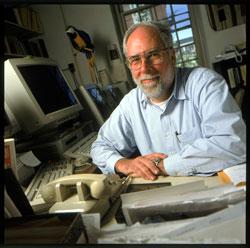
Jim Anderson
|
James Anderson received his Ph.D. in Physiology from MIT in 1967. He completed his postdoctorate at UCLA, and he began teaching at Brown in 1973. He was chair of the CLPS department from 1992-8 and 1999-2001. He has written or co-written seven books, including Introduction to Neural Networks. Anderson studies how brains and computers are different in the way they compute, with a focus on neural networks. Recently, he has been working on a set of models of the intermediate-level organization of the nervous system, and the scaling of computational systems.
Watch Jim's Video
|
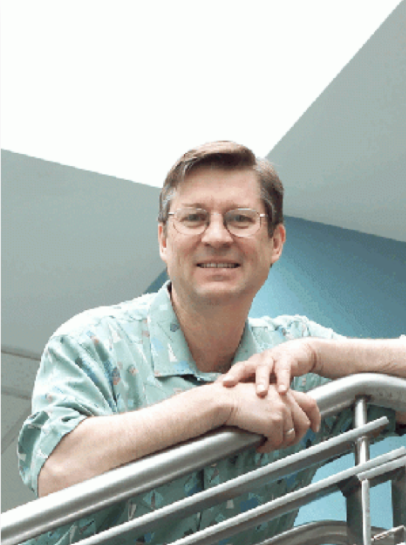
Andrew Barto
|
Andrew G. Barto is a professor emeritus of computer science at the University of Massachusetts Amherst. He joined the department in 1977 and served as its chair from 2007 to 2011. His main research area is reinforcement learning. Barto received his B.S. in mathematics from the University of Michigan in 1970 and five years later got his Ph.D. in computer science. In 1977, Barto joined the College of Information and Computer Sciences of the University of Massachusetts Amherst as a postdoctoral research associate and was promoted to associate professor in 1982, and full professor in 1991. He was a department chair from 2007 to 2011 and is a co-director of the Autonomous Learning Laboratory and faculty member of the Neuroscience and Behavior Program of the University of Massachusetts Amherst.
Watch Andrew's Video
|
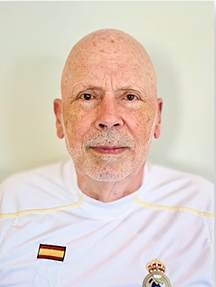
David Brown
|
Dr. David Brown is a leading researcher in the fields of medical imaging and artificial intelligence systems performance evaluation. He received his BS in psychics in 1964 from Stanford University and his Doctorate from UC Berkley in 1986. He pursued a decades-long career in the Medical Imaging and Computer Applications Laboratory of the US Food and Drug Administration, retiring in 2012. He is a fellow of SPIE as well as INNS. He has been a strong supporter of the INNS for many years, serving as a General Chair of IJCNN (1999), President, Treasurer, and the Chair of the College of fellows, resulting in his 2022 receipt pf the INNS ADA Lovelace Award. He is currently Chair of the INNS History Committee, performing interviews of the founders of our field. He also continues to advocate for the importance of statistical rigor in the assessment of AI systems and for the concept of "humble AI," AI that takes into account the uncertainties in its conclusions and the limitations in its mandate.
Watch David's Video
|
|
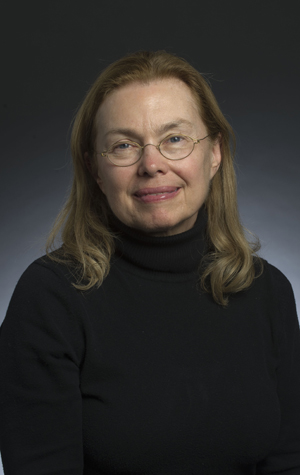
Gail Carpenter
|
Gail Carpenter is a cognitive scientist, neuroscientist, and mathematician. She is a Professor of Cognitive and Neural Systems and a Professor of Mathematics at Boston University, and the director of the Department of Cognitive and Neural Systems (CNS) Technology Lab at Boston University. She earned a Ph.D. in mathematics at the University of Wisconsin-Madison.
Watch Gail's Video
|
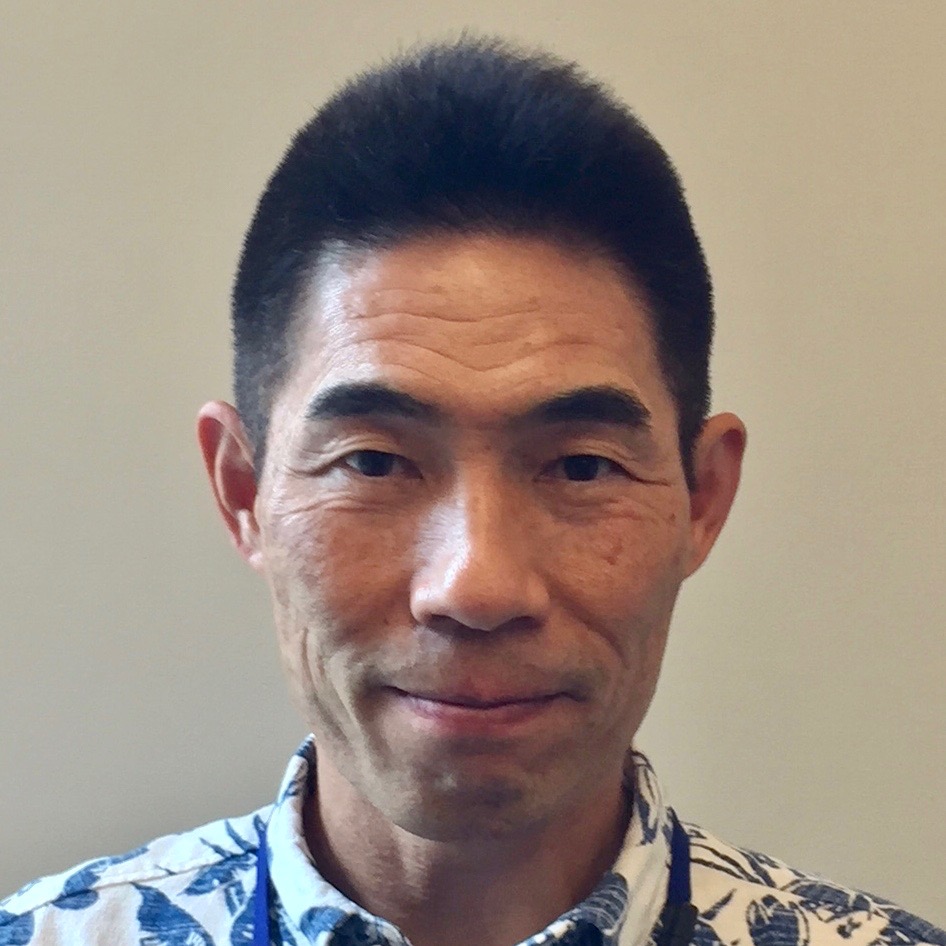
Kenji Doya
|
Kenji Doya took BS in 1984, MS in 1986, and Ph.D in 1991 at U. Tokyo. He became a research associate at U. Tokyo in 1986, U. C. San Diego in 1991, and Selk Institute in 1993. He joined Advanced Telecommunications Research International (ATR) in 1994 and became the head of the Computational Neurobiology Department, ATR Computational Neuroscience Laboratories in 2003. In 2004, he was appointed as the Principal Investigator of Neural Computation Unit, Okinawa Institute of Science and Technology (OSIT) and started Okinawa Computational Neuroscience Course (OCNC) as the chief organizer. As OIST established itself as a graduate university in 2011, he became a Professor and served as the Vice Provost for Research. He serves as the Co-Editor in Chief of Neural Networks since 2008 and a board member of Japanese Neural Network Society (JNNS) and Japan Neuroscience Society (JNSS)> He served as the Program CO-Chair of International Conference on Neural Information Processing (ICONIP) 2007 and 2016, the Program Chair of JNSS meeting in 2010, and the General Chair.
Watch Kenji's Video
|
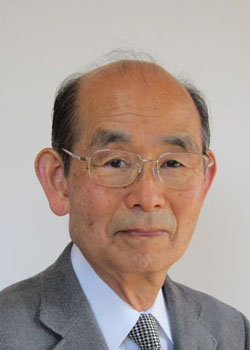
Kunihiko Fukushima
|
Kunihiko Fukushima received a B.Eng. degree in electronics in 1958 and a Ph.D. in electrical engineering in 1966 from Kyoto University, Japan. He was a professor at Osaka University from 1989 to 1999, at the University of Electro-Communications from 1999-2001, and at Tokyo University of Technology from 2001 to 2010. Prior to his Professorship, he was a Senior Research Scientist at the NHK Science and Technology Research Laboratories. He is now a Senior Research Scientist at Fuzzy Logic Systems Institute (part-time position) and usually works at his home in Tokyo.
Watch Kunihiko's Video
|
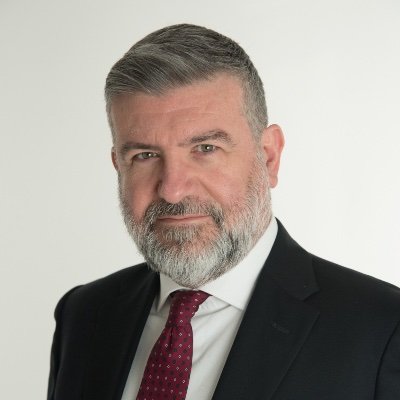
Nicola Fabiano
|
Nicola Fabiano, an Italian Lawyer and data protection and privacy consultant, serves as an Adjunct Professor at Ostrava University (Rome). He has previously held positions as the President of the San Marino Data Protection Authority and as a national expert for the Republic of San Marino on the Committees of the Council of Europe, specifically on "Convention No. 108" and the "Ad hoc Committee on Artificial Intelligence." Fabiano has advised the Government of the Republic of San Marino on legislation related to personal data protection and in 2020, developed the Data Protection and Privacy Relationships Model (DAPPREMO) using high-mathematics and set theory. He is also the author of various articles, essays, books, and papers. Additionally, Fabiano holds certifications as a Security Manager (ICT), Data Protection Officer and Privacy Assessor, and Information Security Management Systems Professional. He is a member of INNS, IEEE #94364839, the awarded "IEEE SA P7007 Ontological Standard for Ethically Driven Robotics and Automation Systems Working Group," and also serves as the Chair of the "Data Privacy and Protection" subgroup. He is also affiliated with the European AI Alliance, XSF (XMPP Standards Foundation), and ForHumanity.
Learn more about Nicola Fabiano
Watch Nicola's Video
|
|
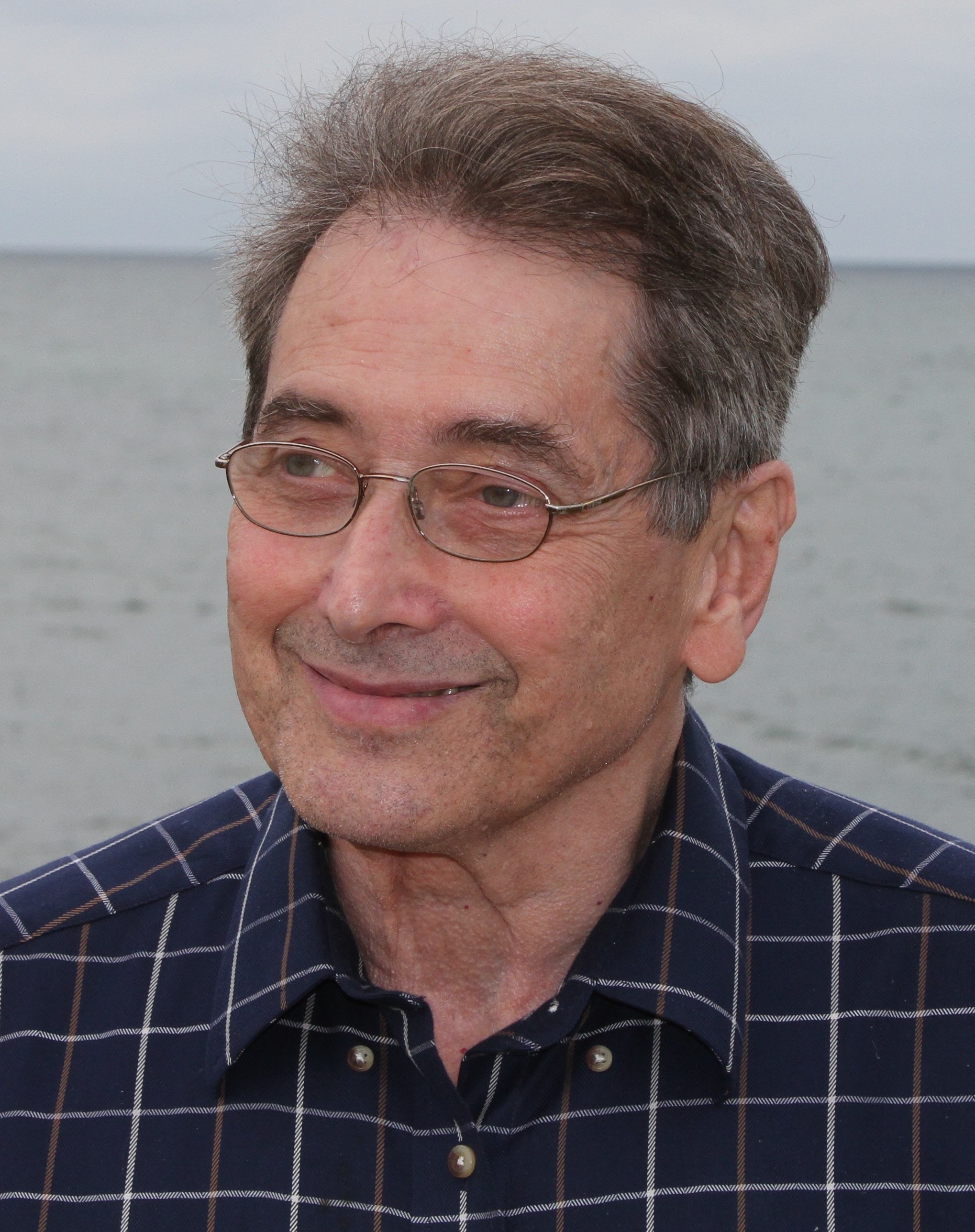
Stephen Grossberg
|
Stephen Grossberg is a cognitive scientist, theoretical and computational psychologist, neuroscientist, mathematician, biomedical engineer, and neuromorphic technologist. He is the Wang Professor of Cognitive and Neural Systems and a Professor Emeritus of Mathematics & Statistics, Psychological & Brain Sciences, and Biomedical Engineering at Boston University.
Learn more about Stephen Grossberg
Watch Stephen's Video
|
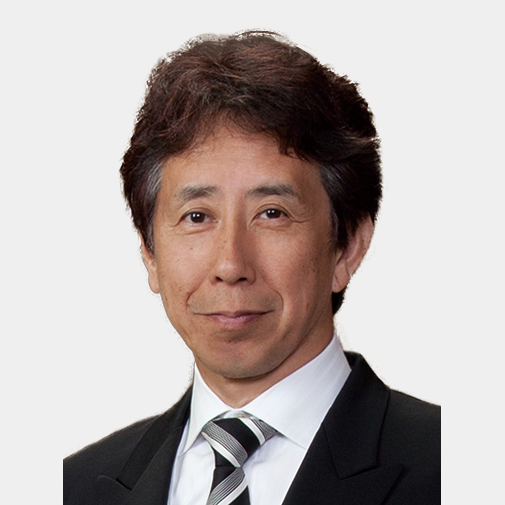
Mitsuo Kawato
|
Mitsuo Kawato received the B.S. degree in physics from Tokyo University in 1976 and the M.E. and Ph.D. degrees in biophysical engineering from Osaka University in 1978 and 1981, respectively. From 1981 to 1988, he was a faculty member and lecturer at Osaka University. From 1988, he was a senior researcher and then a supervisor in ATR Auditory and Visual Perception Research Laboratories. In 1992, he became department head of Department 3, ATR Human Information Processing Research Laboratories. In 2003, he became Director of ATR Computational Neuroscience Laboratories. Since 2004, he has been an ATR Fellow. In 2010, he became Director of ATR Brain Information Communication Research Laboratory Group.
Watch Mitsuo's Video
|
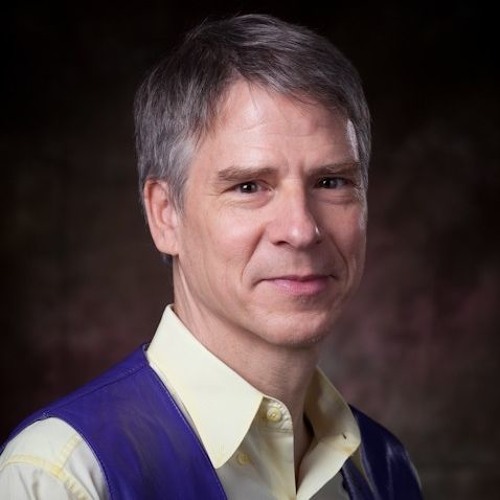
Christof Koch
|
Christof Koch is a German-American neuroscientist best known for his work on the neural basis of consciousness. He is the president and chief scientist of the Allen Institute for Brain Science in Seattle. From 1986 until 2013, he was a professor at the California Institute of Technology. He received a Ph.D. in sciences for his works in the field of nonlinear information processing from the Max Planck Institute in Tubingen, Germany, in 1982. Koch worked for four years at the Artificial Intelligence Laboratory at MIT before joining, in 1986, the newly started Computation and Neural Systems Ph.D. program at the California Institute of Technology.
Watch Christof's Video
|
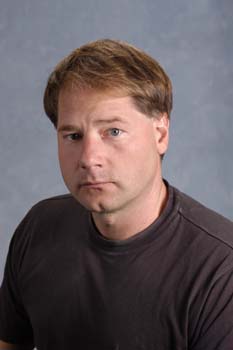
Bart Kosko
|
Bart Kosko is a Professor of Electrical and Computer Engineering, and Law, at the University of Southern California. Dr. Kosko holds degrees in philosophy, economics, applied mathematics, electrical engineering, and law. He has published the textbooks Neural Networks and Fuzzy Systems, and Fuzzy Engineering, the trade books Fuzzy Thinking, Heaven in a Chip and Noise, the edited volume Neural Networks and Signal Processing, Intelligent Signal Processing, and the novels Nanotime and Cool Earth. He is a Fellow of the IEEE and INNS, and he organized the first IEEE International Conference on Neural Networks in 1987 that inaugurated the IJCNN conference series.
Watch Bart's Video
|
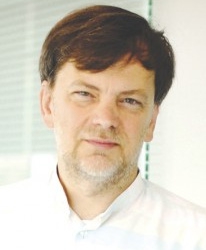
Robert Kozma
|
Kozma received his MS in Power Engineering from the Moscow Power Engineering Institute in 1982, his MS in Mathematics from the Eötvös Loránd University in 1988, and his Ph.D. in Applied Physics from the Delft University of Technology in 1992. Kozma has been an Associate Professor at the Department of Quantum Science and Engineering, Tohoku University, Sendai, Japan since 1993. He became Assistant Professor/Lecturer at the Department of Information Sciences, Otago University, Dunedin, New Zealand in 1996. In 1998 in the USA he became a joint appointment at the Division of Neurobiology and the EECS Department, University of California, Berkeley. In 2009 he was appointed Professor of Computer Science, University of Memphis, Tennessee and since 2009 he is Professor of Mathematical Sciences, University of Memphis, TN. Since 2001 he is also director of the Computational Neurodynamics Laboratory, presently CLION, FedEx Institute of Technology of the University of Memphis.
Watch Robert's Video
|
 George G. Lendaris George G. Lendaris
|
George G. Lendaris is Emeritus Professor of Systems Science and of Electrical and Computer Engineering, Portland State University, Portland, Oregon. He received the B.S. ('57), MS ('58), and Ph.D. ('61) degrees in Electrical Engineering (EE) from the University of California, Berkeley. After receiving the Ph.D., he joined the GM Defense Research Laboratories, where he did extensive work in control systems, neural networks, and pattern recognition. In 1969, he went to academia, first joining the Oregon Graduate Institute, where he was Chair of the Faculty, and, 2 years later, moved to Portland State University (PSU), Portland, OR, where he became one of the founders and developers of their Systems Science Doctoral Program, where he served for 41 years, retiring in 2011. He expanded his academic and research activities into general system theory and practice, and later, substantial effort into computational intelligence research (based on neural networks). He served in a number of capacities at PSU, including President of the Faculty Senate, Director of the Systems Science Graduate Program, and the director of the NW Computational Intelligence Laboratory. He actively participated in the neural network professional arena, serving in a number of capacities, such as member of the ADCOM of the IEEE Computational Intelligence Society (elevated to Fellow of IEEE in 1982 in recognition of his seminal work in pattern recognition, and then Life Fellow in 1997), and ultimately, a member of the Board of Governors of INNS, President of the INNS, and Fellow of the INNS (elected in 2004). His activity in neural network research began in the early 1960s, with focus the last three decades on modularized neural networks and reinforcement learning methods, focusing on application of adaptive critic and dynamic programming methods to online design of optimal controls for changing systems, culminating in developing his ideas of 'experience-based controls'.
Watch George's video
|
|
|
Daniel S. Levine is Research Professor of Psychology at the University of Texas at Arlington, having served at the same university as Professor of Psychology from 1997 to 2023 and as Associate Professor of Mathematics from 1996 to 2007. He is a Fellow of the INNS, having served on the INNS Board of Governors from 1995 to 2008 and as INNS President in 1998. He was Program Chair of the 2005 IJCNN and General Co-Chair of the 2013 IJCNN. He is the author of a textbook, Introduction to Neural and Cognitive Modeling (3rd edition, Taylor & Francis, 2019) and a general audience book, Healing the Reason-Emotion Split (Taylor & Francis, 2021), and senior or junior editor of seven other books on neural networks and biomathematics. His research centers on neural network modeling of decision making, cognitive-emotional interactions, and higher cognition, and he supervises a laboratory on emotional influences in decision making.
Watch Daniel's video
|
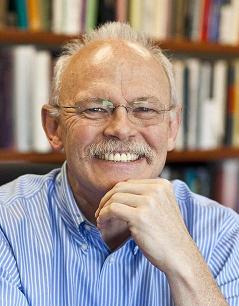
Jay McClelland
|
Jay McClelland is a Professor in the Psychology Department and Director of the Center for Mind, Brain, Computation and Technology at Stanford. His research addresses a broad range of topics in cognitive science and cognitive neuroscience, including perception and perceptual decision making; learning and memory; language and reading; semantic and mathematical cognition; and cognitive development. He views cognitive functions as emerging from the parallel, distributed processing activity of neural populations, with learning occurring through the adaptation of connections among participating neurons, as discussed in Parallel Distributed Processing (Rumelhart, McClelland, and the PDP Research Group, 1986). Research in his lab revolves around efforts to develop explicit computational models based on these ideas; to test, refine, and extend the principles embodied in the models; and then to apply the models to substantive research questions through behavioral experiment, computer simulation, and mathematical analysis.
Watch Jay's Video
|
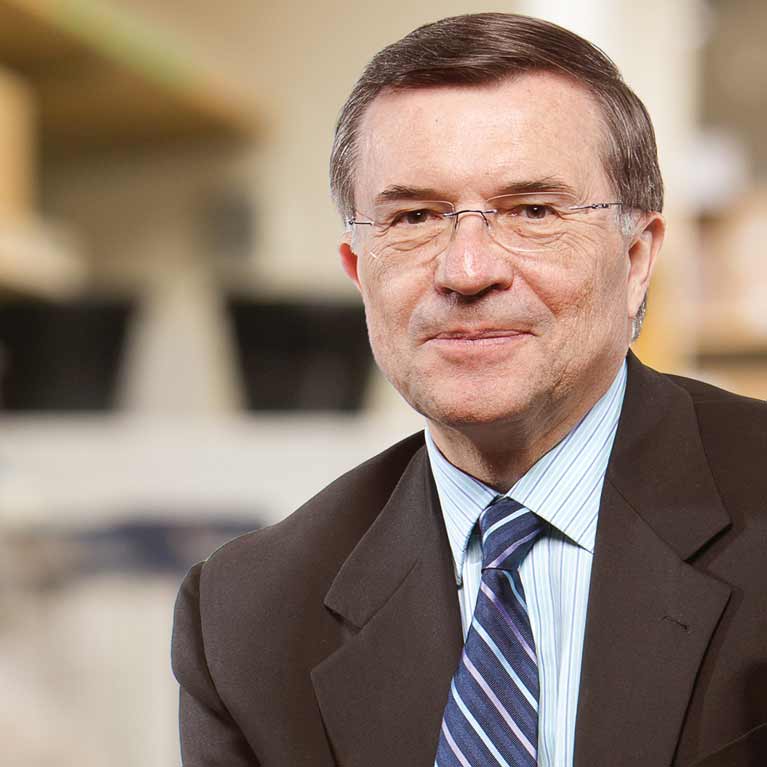
Terrence Sejnowski
|
Terrence Sejnowski is a researcher in computational neuroscience and neural networks who received his M.A. and Ph.D. in physics from Princeton University in 1978. he is the Francis Crick Professor at the Salk Institute for Biological Studies, where he directs the Computational Neurobiology Laboratory and the Crick-Jacobs Center for Theoretical and Computational Biology. Sejnowski is also a professor of the biological sciences and an adjunct professor for multiple departments at the University of California, San Diego, where he co-directs the Institute for Neural Computation. A pioneer in the field of neural networks, he has made significant contributions to computational neuroscience and co-invented the Boltzmann machine, which has been widely adopted in machine learning. His research aims to understand the computational resources of brains and build linking principles from the brain to behavior using computational models. Sejnowski has received numerous honors and awards, including being one of the only three living people to be elected to all four of the national academies (National Academy of Sciences, National Academy of Engineering, National Academy of Medicine, and the National Academy of Inventors).
Watch Terrence's Video
|
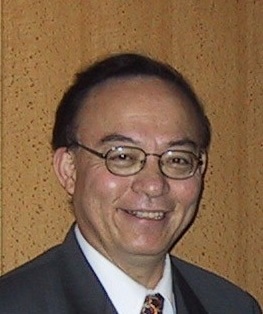
Harold Szu
|
Harold Szu has been a champion of brain-style computing for over two decades. He has served as founder, former president, and former governor of the International Neural Network Society (INNS). He has received a number of awards such as the INNS D. Gabor Award in 1997, the Eduardo R. Caianiello Award in 1999 from the Italy Academy, the Nanoengineering Award, and the Biomedical Wellness Engineering Award by SPIE. He is also a Fellow of numerous engineering societies including the American Institute of Medicine and Bioengineering (AMIBE), IEEE, Optical Society of America (OSA), International Society for Optics and Photonics (SPIE).
Watch Harold's Video
|

Paul Werbos
|
Paul John Werbos is an American social scientist and machine learning pioneer. He is best known for his 1974 dissertation, which first described the process of training artificial neural networks through the backpropagation of errors. He also was a pioneer of recurrent neural networks. Werbos was one of the original three two-year Presidents of the International Neural Network Society (INNS). In 1995, he was awarded the IEEE Neural Network Pioneer Award for the discovery of backpropagation and other basic neural network learning frameworks such as Adaptive Dynamic Programming. Werbos has also written on quantum mechanics and other areas of physics. He also has an interest in larger questions relating to consciousness, the foundations of physics, and human potential. He served as program director of the National Science Foundation for several years until 2015.
Learn more about Paul Werbos
Watch Paul's Video
|
|
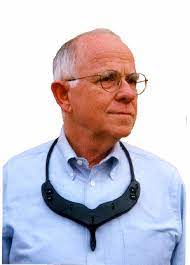
Bernard Widrow
|
Professor Widrow is Professor Emeritus in the Electrical Engineering Department at Stanford University, where he continues to carry on research on adaptive signal processing, adaptive control systems, adaptive neural networks, human memory, and human-like memory for computers. Among his many awards are the Benjamin Franklin Medal from the Franklin Institute, the Alexander Graham Bell Medal from IEEE, and the Hebb Award from the International Neural Network Society. He is a Fellow of IEEE, AAAS, and INNS and a member of the National Academy of Engineering.
Watch Bernard's Video
|
|















 George G. Lendaris
George G. Lendaris Daniel S. Levine
Daniel S. Levine


